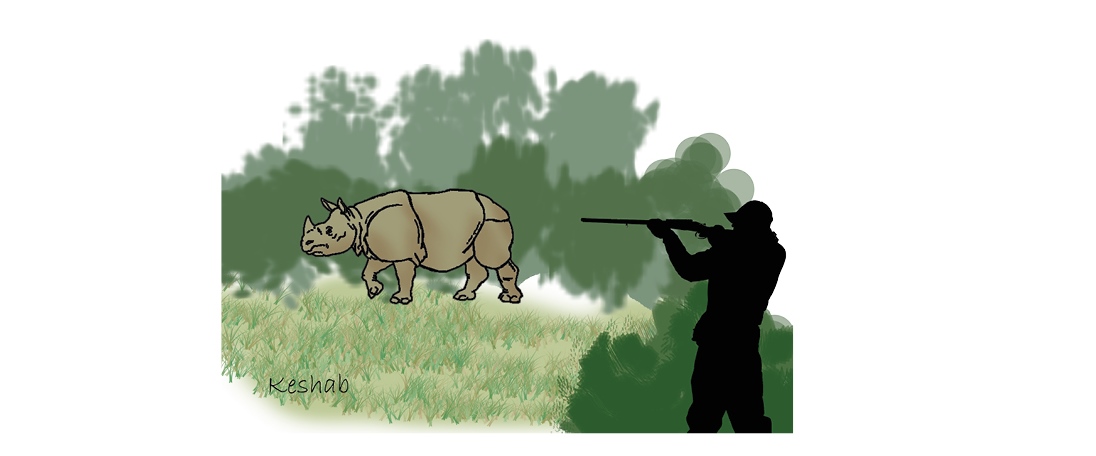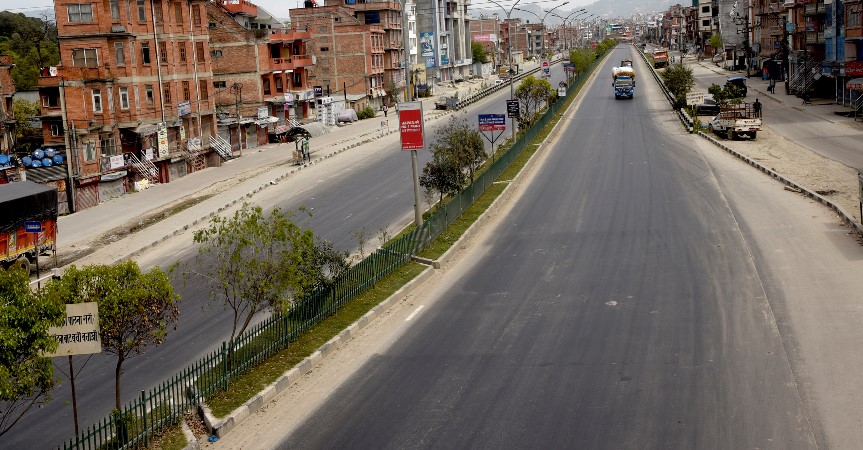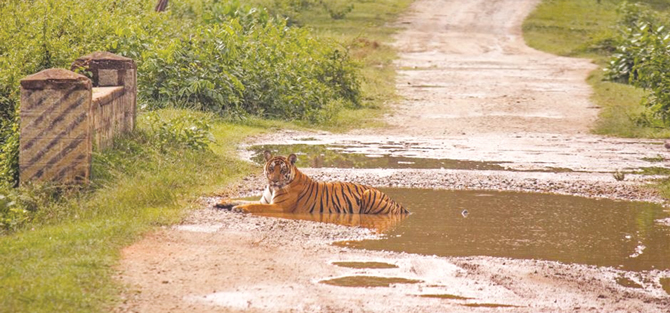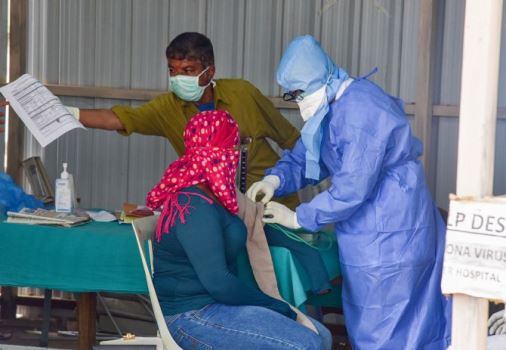Officials claim evident progress in drive against poaching

By Indira Aryal
Kathmandu, June 26: On April 25, 2020, bodies of six musk deer were found inside Sagarmatha National Park (SNP) in Solukhumbu district in what officials said was one of the worst cases of poaching.
Poachers had killed six musk deer in the forest inside SNP during a coronavirus lockdown period in Nepal. Three people have been arrested for illegally poaching and the case is under investigation.
In another incident in Parsa, one person was killed while another was arrested in the exchange of fire between a patrolling team of Nepal Army personnel and poachers at Parsa National Park on March 27, 2020.
Bhimlal Moktan of Padam Pokhari-13 in Makwanpur, was killed in the cross-fire while Mohan Singh Moktan of the same locality was arrested on the same day. Officials have filed a case against them and the case is sub-judice.
Similarly, during the first two weeks of lockdown, a patrolling team at the Shey-phoksundo National Park in Dolpa district recorded two cases of poaching. Officials seized 20 sets of loaded homemade guns from the poachers.
Likewise, two people were arrested from Banke National Park (BNP) on charge of smuggling four baby boars. They have been charge-sheeted for smuggling of wild animals and the case is under investigation, said conservation officer at the National Park Pramod Bhattarai
BNP recorded 171 cases of hunting, poaching and other illegal activities like smuggling of wood and fodder during the three months of lockdown. They have fined those involved in such illegal activities from Rs. 500 to Rs.7,500.
Bhattarai said that the BNP had collected Rs. 121,900 from fines during the three months of lockdown. People involved in illegal wood cutting, fodder collection and fishing are fined immediately. However, the cases of wild animal trafficking are filed under the National Parks and Wildlife Conservation Act.
“Big and small incidents of poaching and illegal trading of timber and fodder were recorded during the lockdown period in different conservation sites but we have managed to keep zero poaching in case of one-horned rhino and other endangered animals,” Bishnu Prasad Shrestha, information officer at the Department of National Parks and Wildlife Conservation (DNPWC), said.
Most people entered the protected areas for wood and grass during the lockdown as there was no movement of people and they found it easy to steal timber and fodder, Shrestha said.
“Certain indigenous communities have been given license to fishing but if anyone is found fishing without license, they are fined immediately,” he said.
The penalty varies for illegal collection of timber and fodder, and wildlife poaching. In the case of illegal entry into conservation sites for timber and fodder, the immediate fine ranges between
Rs. 500 to 5,000. But for illegal poaching of wild animals, the fine ranges between Rs. 500,000 to Rs. 1 million along with five to 15 years of imprisonment.
With continuous efforts of conservation officials, police personnel, Nepal Army officials and local authorities, poaching of wild animals has been controlled, Shrestha said.
According to the 2018 census, there are 238 tigers in Nepal. The number of one-horned rhinos was 645 in 2015. The DNPWC was scheduled to enumerate one-horned rhinos this year but due to the coronavirus fear, the programme has been postponed, Shrestha said.
There are 300 to 400 snow leopards in Nepal as per the 2015 census. Likewise, there are 441 wild water buffaloes, 344 blackbucks and 2,276 swamp deer in different conservation sites.
Recent News

Do not make expressions casting dout on election: EC
14 Apr, 2022
CM Bhatta says may New Year 2079 BS inspire positive thinking
14 Apr, 2022
Three new cases, 44 recoveries in 24 hours
14 Apr, 2022
689 climbers of 84 teams so far acquire permits for climbing various peaks this spring season
14 Apr, 2022
How the rising cost of living crisis is impacting Nepal
14 Apr, 2022
US military confirms an interstellar meteor collided with Earth
14 Apr, 2022
Valneva Covid vaccine approved for use in UK
14 Apr, 2022
Chair Prachanda highlights need of unity among Maoist, Communist forces
14 Apr, 2022
Ranbir Kapoor and Alia Bhatt: Bollywood toasts star couple on wedding
14 Apr, 2022
President Bhandari confers decorations (Photo Feature)
14 Apr, 2022









